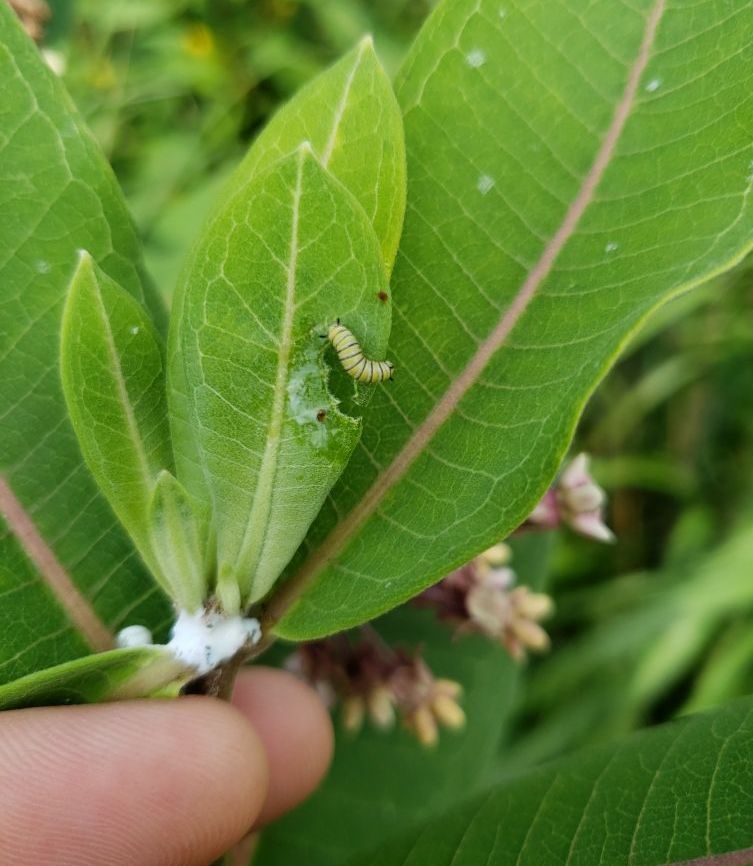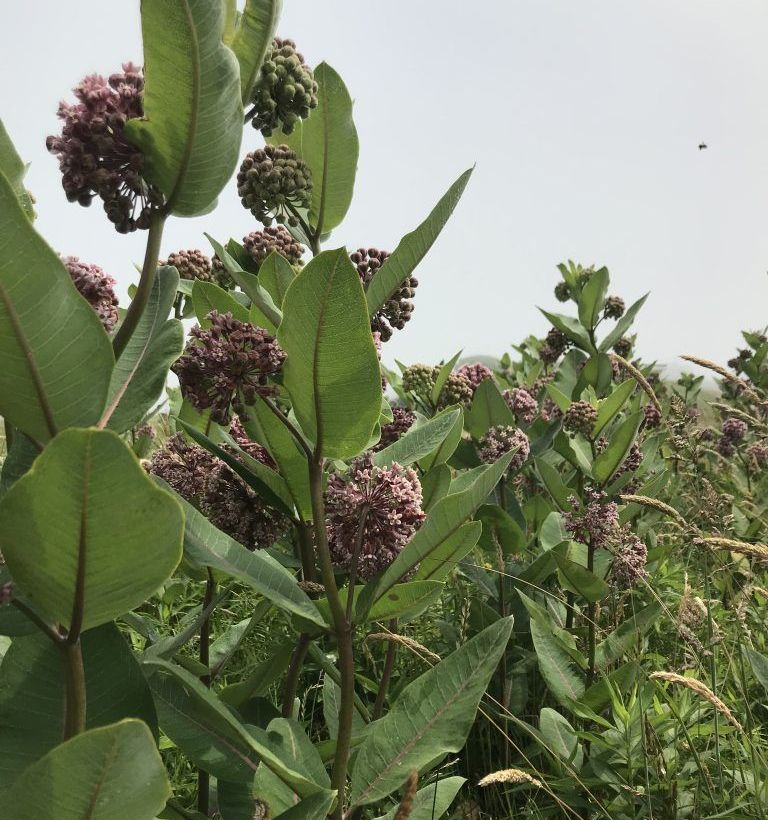Additional Research
Green Crab Research
The Nantucket Land & Water Council (NLWC) has collaborated with the Town of Nantucket Natural Resources Department and the Maria Mitchell Association to investigate the numbers and population dynamics of green crabs in Nantucket Harbor. The green crab is considered a delicacy in its European home waters- crabs are eaten soft-shell, a mainstay in soups and stews, crab cakes, and even the roe is a favorite of fishing communities along the Mediterranean sea. The NLWC hopes to bring the centuries-old tradition of cooking green crabs to Nantucket, supporting local businesses and helping solve an ecological problem wreaking havoc in our harbors.
The Water Fund enables the NLWC to continue investing in this research. It is important that Nantucket gain a better understanding of all threats to our natural marine ecosystems. Join us in this important research by making a donation to
The Water Fund and if you would like to get involved in the Land & Water Council’s green crab research as a volunteer, please contact Nantucket Waterkeeper RJ Turcotte at rj@nantucketlandwater.org for upcoming volunteer opportunities!
Stormwater Sampling
In 2017 the Nantucket Land & Water Council (NLWC) began working with the Town of Nantucket Department of Public Works to sample stormwater from select outfall pipes as it enters Nantucket Harbor. The Town had never directly sampled this stormwater input which could be a significant source of pollution to the marine environment. Finding out what pollutants are entering the harbor from these locations, and in what quantities, is important as the Town prioritizes expensive infrastructure upgrades to the stormwater system.
The NLWC also hired The Horsley Witten Group (HW) to work with them on possible Best Management Practices and bioremediation designs for the Town to use in the future. HW is recognized as one of the most experienced stormwater management design, assessment, planning, policy, and training consultants in New England.
The Water Fund will enable the NLWC to continue our sampling initiative – highlighting areas of concern and providing the Town with valuable information for future planning, as well as enabling us to continue tapping into Horsley Witten as a resource for future infrastructure improvements.
Monarch Larvae Monitoring Program
Starting in 2017 through 2021 the Nantucket Land & Water Council collected Monarch butterfly data weekly each summer from a milkweed patch in Tom Nevers fields as part of a nationwide data collection program. The patch, about 400 square ft, had been left untouched while the grass around it was mowed regularly. As a result, it served as a habitat for Monarchs, who rely heavily on milkweed for survival as their sole food source. Each plant was searched carefully, with the goal of tracking the abundance of Monarchs in each stage of their development; from egg to larva (the caterpillar as it grows and changes into five distinct larval stages, known as instars) to adult butterfly. These numerical records, as well as descriptions of the habitat they live in, were sent to the Monarch Larva Monitoring Program to become part of a national database.
The push for this data collection comes from a concern about the decrease in Monarch butterflies nationally. The Monarch’s population has declined rapidly over the last two decades, due to habitat destruction as harmful pesticides like Roundup wreak havoc on milkweed populations. Additionally, climate change and resulting severe weather conditions like droughts and storms threaten Monarchs’ survival.The species is rendered especially vulnerable by their dependence on environmental cues to tell them when to migrate, hibernate, and reproduce.
2018’s summer data collection kicked off with a trip to an exceptionally foggy Tom Nevers with NLWC Resource Ecologist RJ Turcotte, NLWC Executive Director Emily Molden, and NLWC intern Sophia Oomen-Lochtefeld. Although 2018 proved to be an abundant year for monarch butterflies, with a boom in population that almost doubled from 2017, our initial findings were scarce. Milkweed bugs and a variety of other insects, including bumble bees, were plentiful. In recent weeks, we have detected a large increase in the number of Monarch larva at the site and were excited to see what the rest of the season brings.
So what can we all do to help stop the decline of monarchs? Planting milkweed and working to conserve and restore existing patches is essential to their survival. Additionally, a decrease in the use of harmful pesticides like Roundup will slow their habitat destruction and help the well-being of a variety of other species. The Nantucket Land & Water Council also recommends using native plantings and pollinators in your landscape and home gardens to encourage these species’ survival.


Nantucket Moth Survey
In the early 2000’s the Nantucket Land & Water Council commissioned a multiyear report to document the Moth community of Nantucket. These secretive creatures are difficult to track as most are only active at night. Working with Mark Mello from the Llyod Institute, The Land & Water Council assisted in an island wide moth survey throughout a wide variety of plant communities. The research was critical to highlight the importance of preserving these unique ecosystems and enhance the regulatory database for endangered species which is maintained by the Massachusetts Natural Heritage and Endangered Species Program.
Nantucket Biodiversity Initiative
The Nantucket Land and Water Council (NLWC) is proud to be a part of the Nantucket Biodiversity Initiative (NBI). As an organization dedicated to protecting the island’s natural resources, the NLWC shares NBI’s commitment to understanding and preserving the unique ecology of our surroundings.
The mission of the Nantucket Biodiversity Initiative (NBI) is to support and convey a deeper understanding of the biodiversity of Nantucket, Tuckernuck, Muskeget, and their associated waters by fostering collaboration, funding and facilitating research, and sharing scientific knowledge.
Objectives:
- To work in partnership with conservation organizations, educational institutions, government agencies, local businesses, and individuals to further the mission of the NBI;
- To support and facilitate biodiversity research on Nantucket, Tuckernuck and Muskeget islands and surrounding waters and share results with the scientific community and the general public;
- To develop a comprehensive inventory of island species and document population trends;
- To coordinate the cataloging of data and reports and organize the deposition of biological specimens at appropriate institutions;
- To detect and manage invasive exotic species that pose a threat to biodiversity on the islands;
- To educate the public about the significance of diverse biological communities and inspire them to become responsible stewards of the environment; and
- To make biodiversity information available to conservation organizations, government agencies, and the general public involved in decisions that affect Nantucket's environment.
NBI is a collaborative effort of the following organizations: Linda Loring Nature Foundation, Maria Mitchell Association, Massachusetts Audubon Society, Massachusetts Natural Heritage & Endangered Spcies Program, Nantucket Conservation Foundation, Nantucket Islands Land Bank Commission, Nantucket Land & Water Council, Nantucket Memorial Airport, Science Department of the Nantucket High School, Trustees of Reservations, Tuckernuck Land Trust, UMass Boston Nantucket Field Station and US Fish and Wildlife Service.
By collaborating with NBI, the NLWC contributes to vital research, fosters education, and supports efforts to share scientific knowledge with the community. Together, the NLWC and NBI are working to ensure that these islands' rich and diverse ecosystems are protected and appreciated for generations to come.
Learn more about the Nantucket Biodiversity Initiative (NBI).
Additional Research Topics
Stay informed with the latest news from Nantucket Land & Water Council


